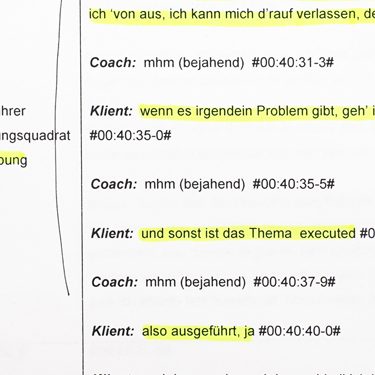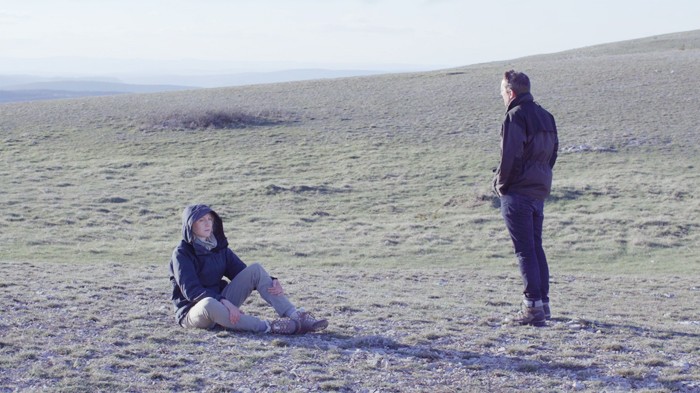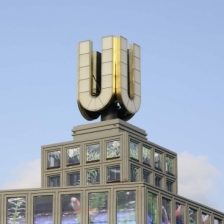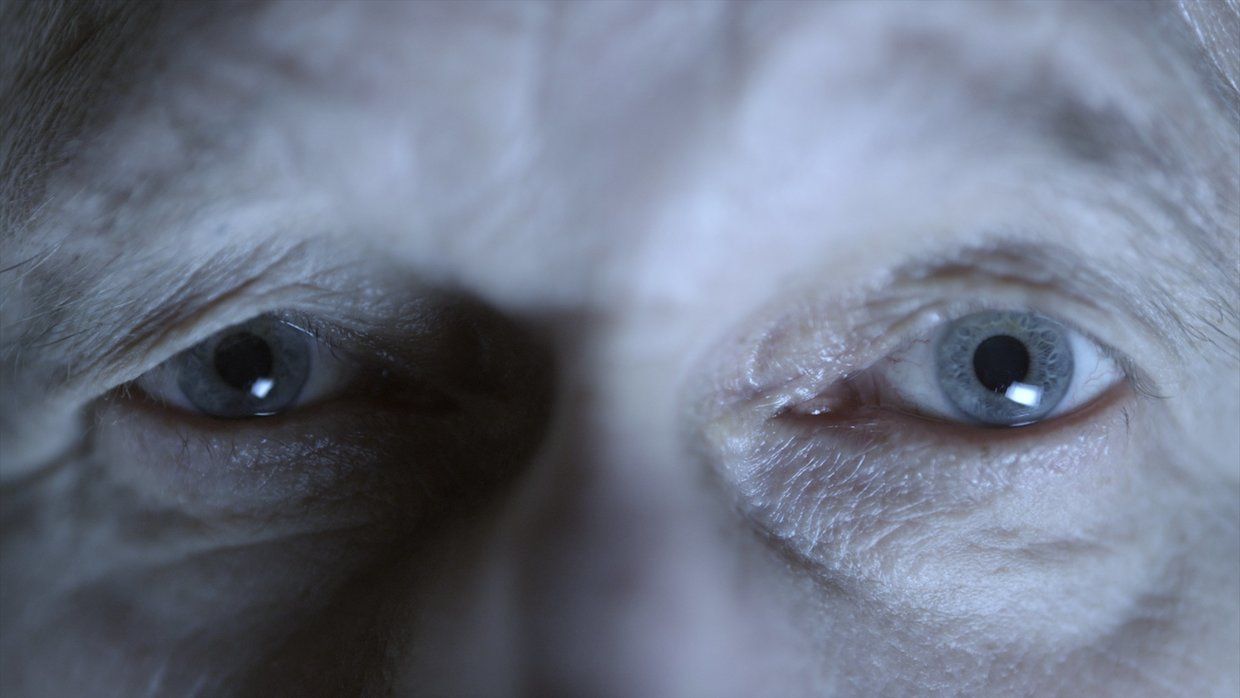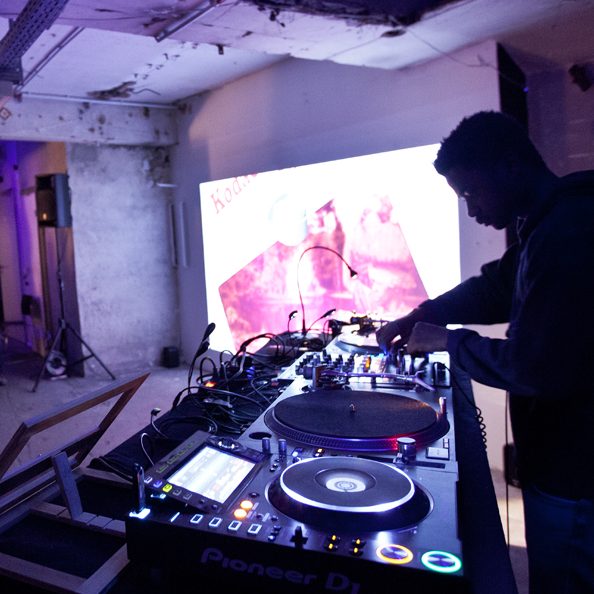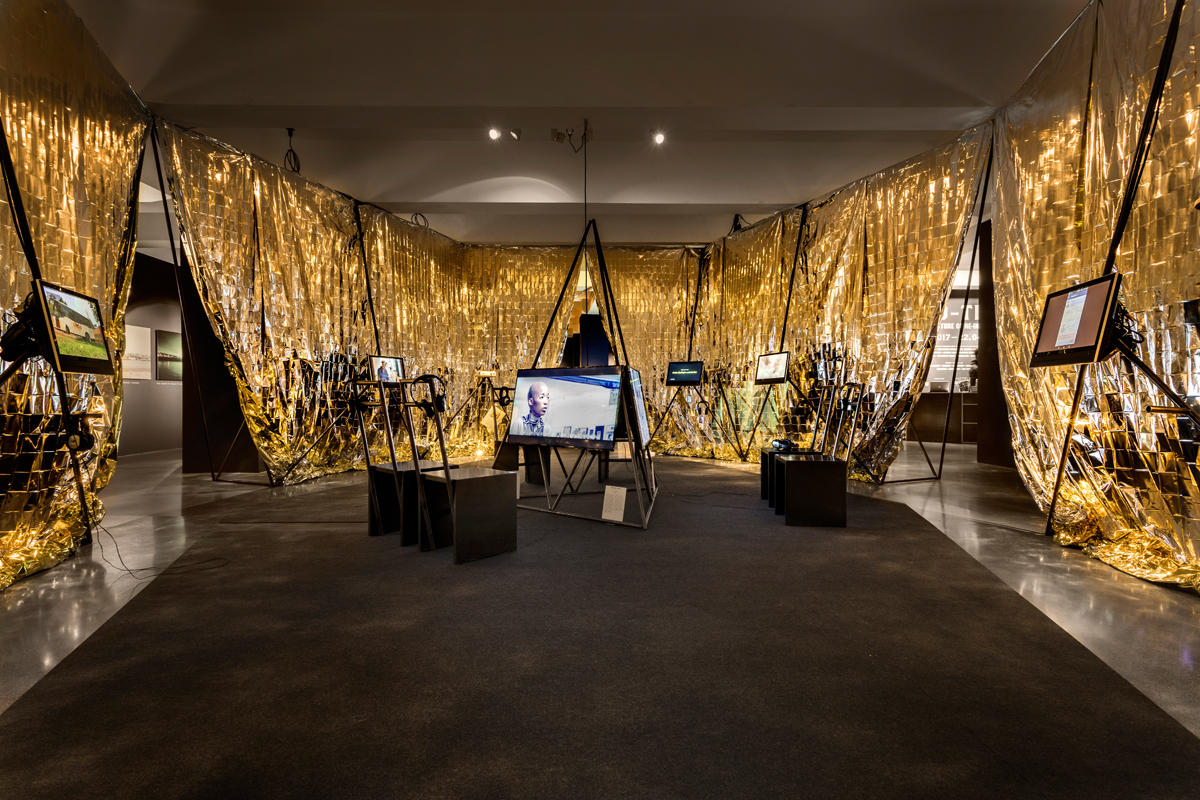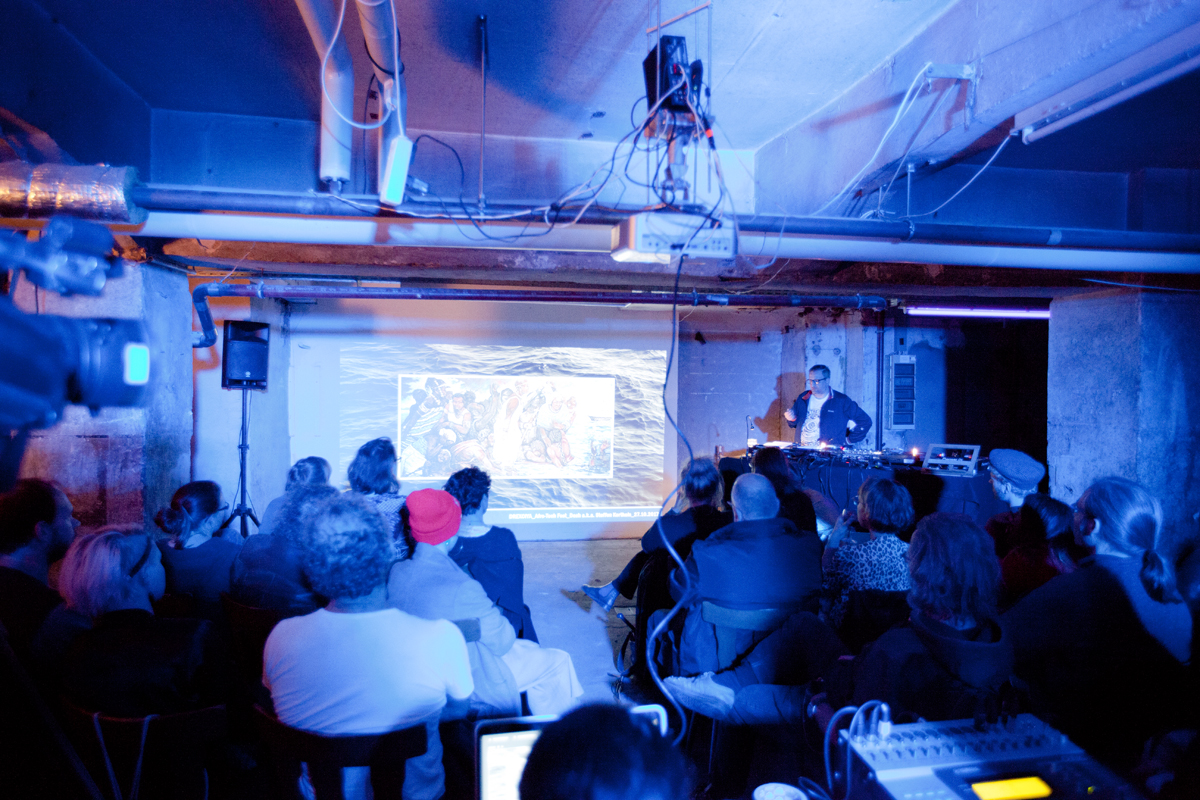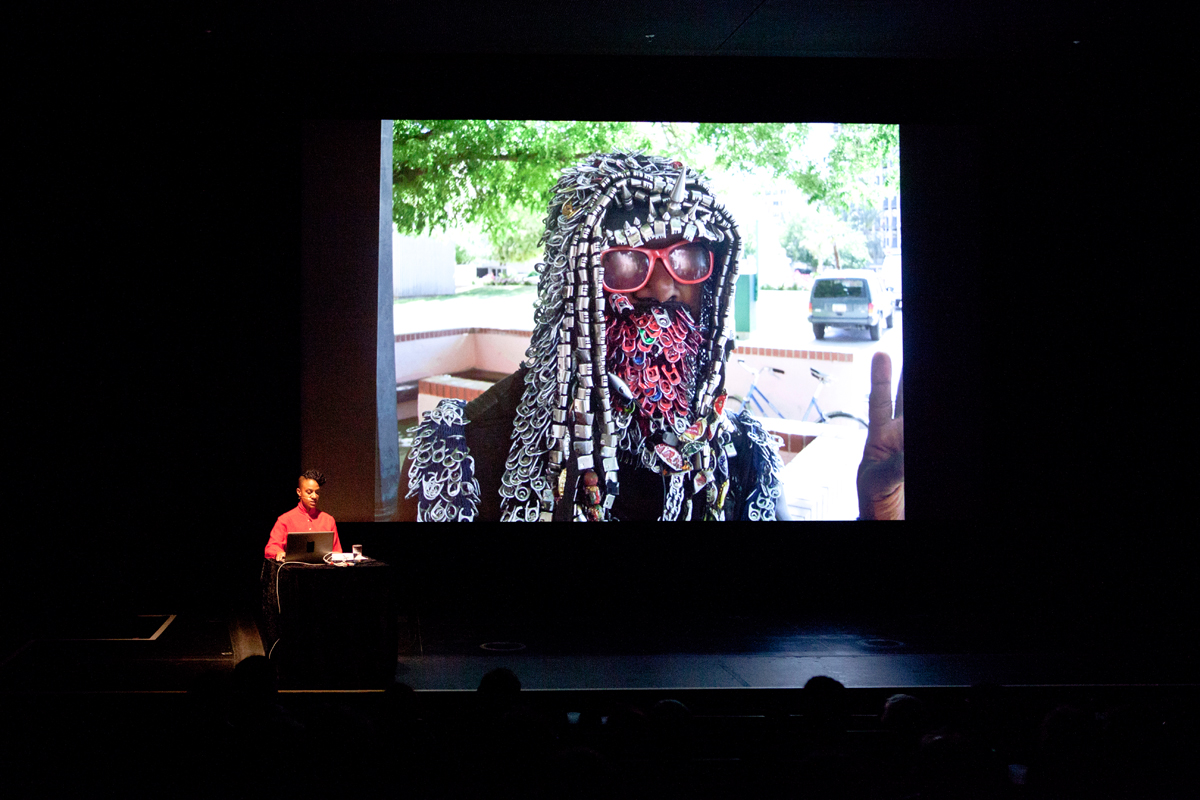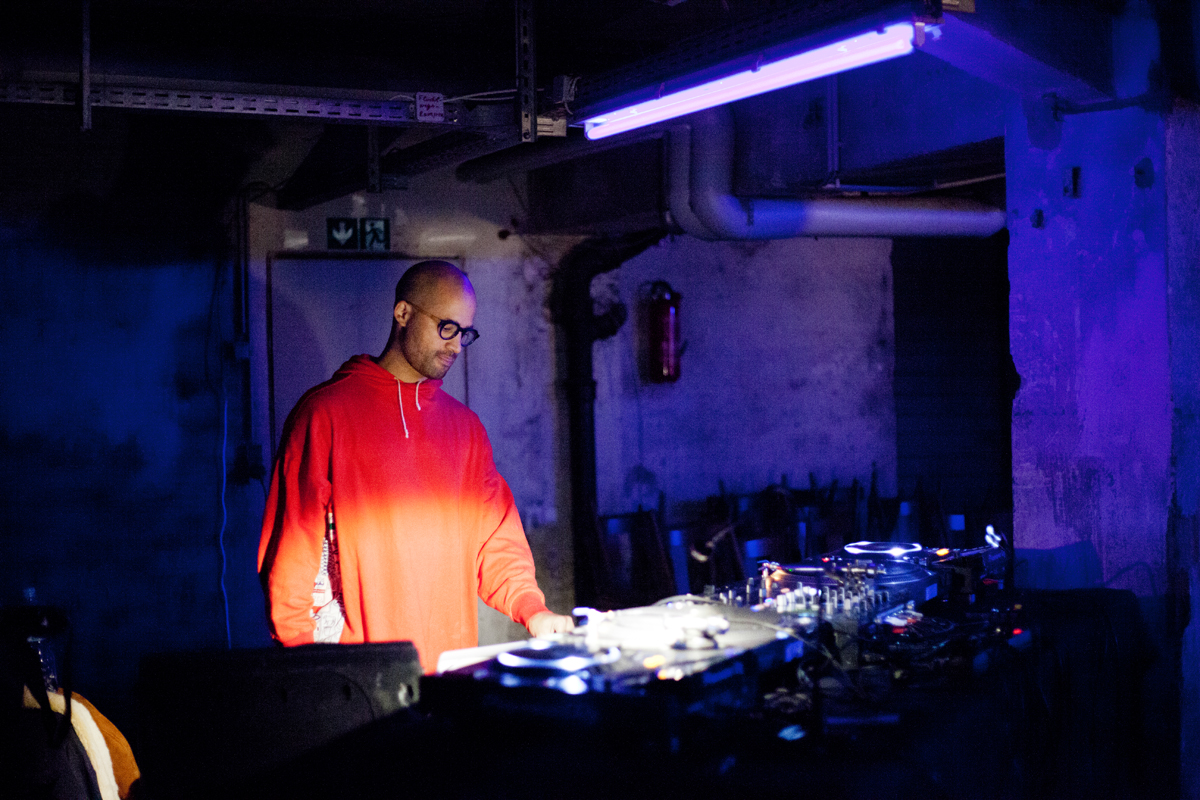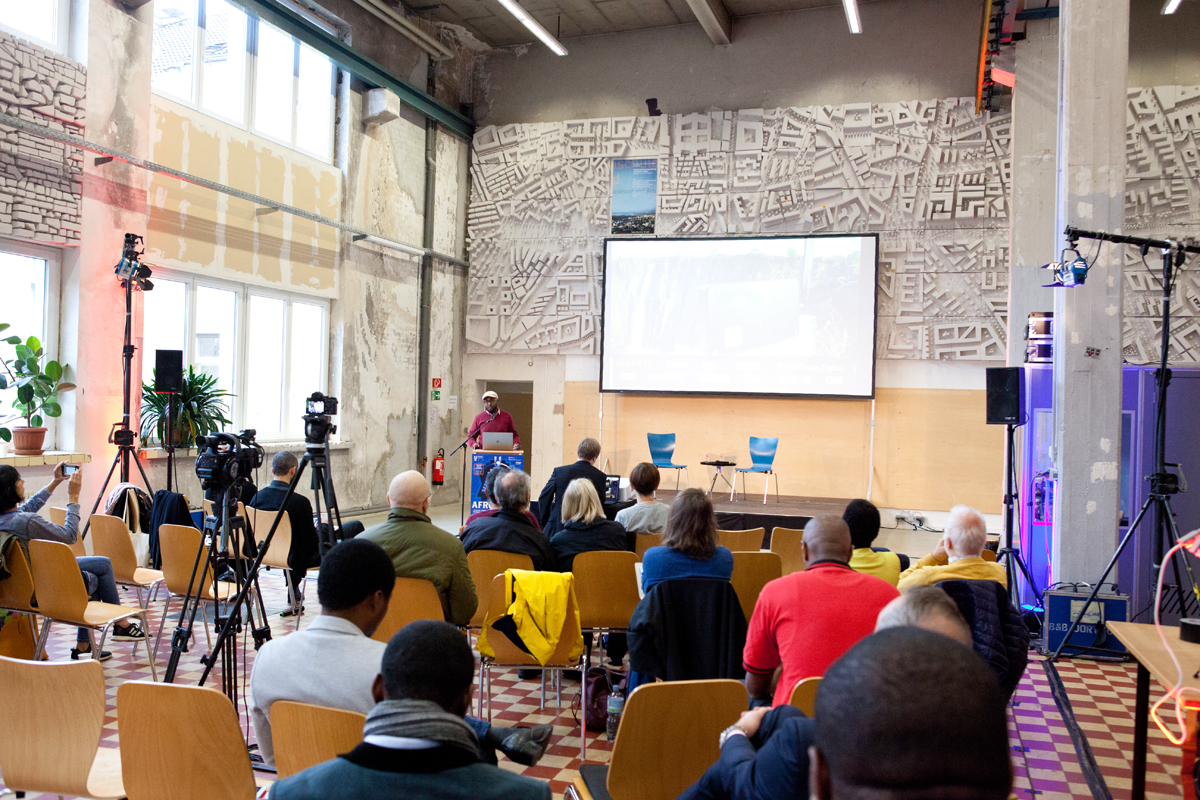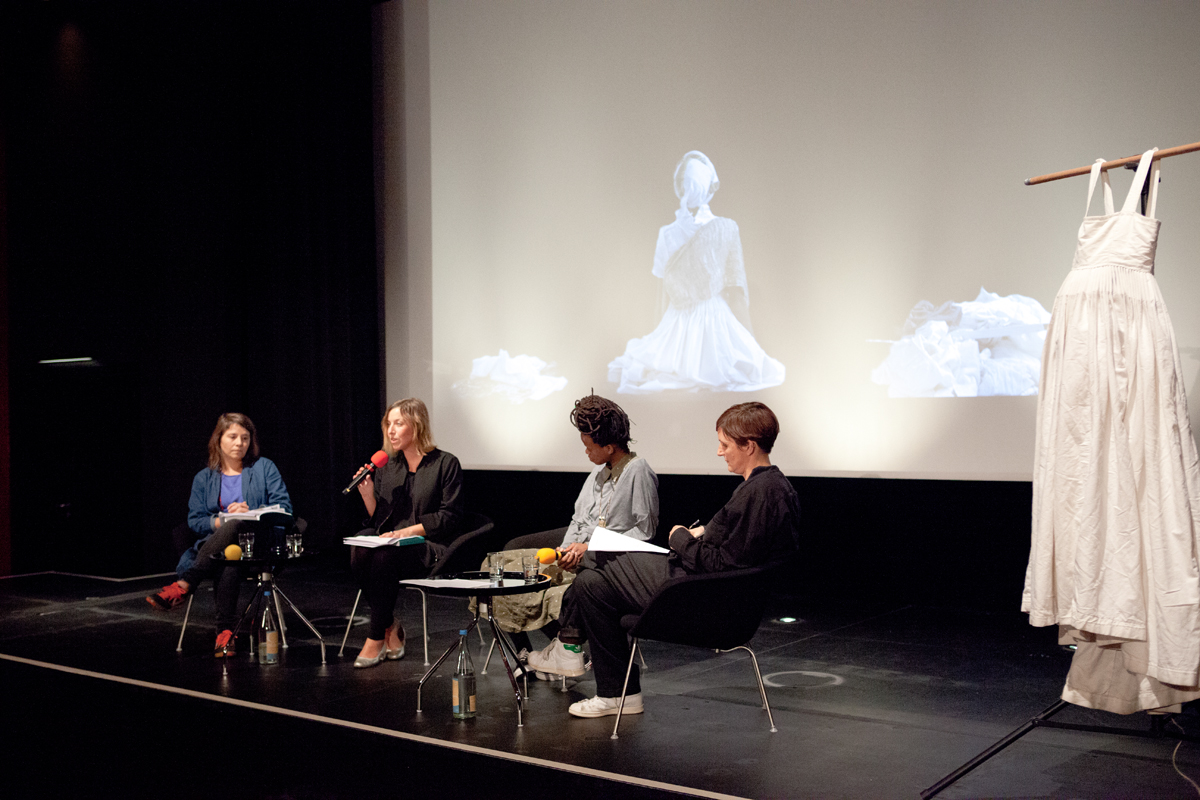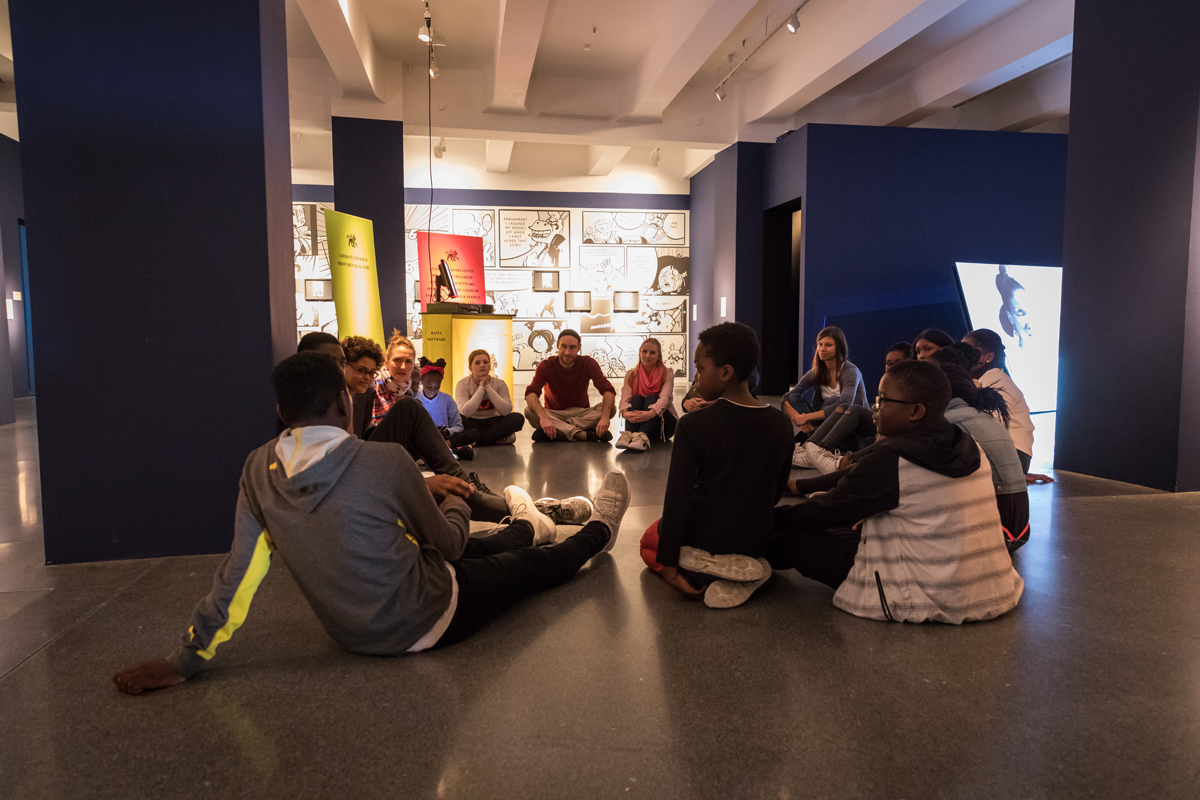A cooperation between Office medienwerk.nrw, Africa Positive e.V., Hartware MedienKunstVerein, Interkultur Ruhr, Regionalverband Ruhr (RVR)
A space program in Zambia, speculations about the future of Zanzibar, a little boy in 1980s Burkina Faso dreams of superheroes, and a trip to the utopian island of Drexciya.
On June 23rd, 2017, the media-art-project Afro-Tech Fest was a guest at the Afro-Ruhr Festival 2017 (organizer: Africa Positive e.V.) and invited visitors to an evening of cinema with four short films, which gave a first insight into the discussed topics during an international exhibition and festival week in Dortmund at the end of October (opening Afro-Tech Fest: 20.10.2017).
The film programme in June focused on stories about the future from a variety of african perspectives. What they all have in common is an independent view on technology and on various myths of popular culture, which challenges the ruling powers of interpretation. The film is understood as a medium in which one’s own utopias and dystopias can be created.
The filmmakers, whose works have been shown, use such diverse and creative design possibilities to create these imaginary spaces: In her film, director Frances Bodomo, for example, adds a third actor to the well-known story about the race to the moon in the 1960s – a village community in Zambia which is building its own rocket. Simon Rittmeier tells of a future in which the current “refugee crisis” has turned into its opposite: In his film, it is people from Europe who embark on the perilous journey across the Mediterranean to seek refuge in the countries of Africa – and sometimes end up on a legendary island whose inhabitants have access to unknown, advanced technologies.
Alternative historiography meets speculation. Science fiction stories from the “global North” meet much older myths and legends in different regions of Africa, always starting from the very real social and political situations of the present.
The evening, curated by Alex Moussa Sawadogo (Afrikamera/Berlin), provides an insight into current film production in various african countries and aims to arouse curiosity about the numerous events and the exhibition in the context of the Afro-Tech Festival, which were presented later in 2017 in Dortmund by the cooperation partners Hartware MedienKunstVerein (HMKV), Interkultur Ruhr, Africa Positive e.V. and office medienwerk.nrw.
THE PROGRAM:
*1*
Afronauts, Ghana/USA 2014, 14 min. engl. OF / Director: Frances Bodomo
Afronauts tells an alternative story of the race to the moon, based on true events. It is the night of July 16th, 1969, when the United States prepares to launch Apollo 11. At the same time, in the now independent Zambia, an inventive group of villagers builds a rocket to enter the “race into space”. As the launch date approaches, their astronaut – 17-year-old Matha Mwambwa – has to decide whether she wants to give her life to keep up the myths of her family …
Ghanaian filmmaker Frances Bodomo studied film at Columbia University and at the Tisch School of the Arts at NYU. Her first short film “Boneshaker” (with Oscar-nominee Quvenzhané Wallis) was screened at more than 20 festivals. “Afronauts” celebrated its world premiere at the Sundance Festival 2014.
*2*
Twaaga, Burkina Faso/France 2013, 31 min / Original with English subtitles / Director: Cédric Ido
Burkina Faso is a country in transition in 1985. Manu, who has a passion for comics, and his big brother Albert grow up in a time when the impossible seems to be possible. When Albert one day decides to undergo a magical ritual designed to make him invisible, Manu realizes that there are real powers, which can compete with those of his superheroes.
The Burkinabè Cédric Ido works as a scriptwriter, director, actor, musician and draftsman. In 2008 he appeared as an actor in Spike Lee’s film “Miracle at St. Anna“. As a director he is responsible for the television documentary “Un ‘Stains’ de musique” (2009) and the short film “Hasaki Ya Suda” (2011).
*3*
Jonah, Tanzania/Great Britain 2013, 17 min / English OF / Director: Kibwe Tavares
Mbwana and his best friend Juma are two young men from Zanzibar with big dreams. These dreams seem to come true when they photograph a giant fish jumping out of the water and their small town becomes a tourist hotspot. But the sensational discovery not only puts the relationship of the two friends to the test, it also changes their formerly sleepy hometown.
British Sundance winner Kibwe Tavares realised his award-winning film “Robots of Brixton” while he was studying architecture. Together with Jonathan Gales and Paul Nicholls he founded the production company Factory Fifteen, with which he also created the special effects for “Jonah“. He combines his knowledge in architecture with storytelling and animation to create futuristic animated 3D live-action movies.
*4*
Drexciya, Germany/Burkina Faso 2012, 27 min. / English OF / Director: Simon Rittmeier
Simon Rittmeier’s short film is inspired by the afro-futuristic myth of the place “Drexciya” – a “black Atlantis”. Europe has gone under long ago. A young man tries to bring european refugees – in the hope of a better life in Africa – in boats across the Mediterranean Sea. One day his boat sinks and he is the only survivor to be stranded on the African coast. Alone, he sets off for the next big city – Drexciya.
The filmmaker Simon Rittmeier studied fine arts and film at the Academy of Fine Arts in Hamburg and at the Academy of Media Arts in Cologne. He often uses archive images to explore the power and political influence of the moving image. His films, both experimental and essayistic, question social conventions and classical narratives about history.
The films are subtitled in English or in English. Introduction by Alex Moussa Sawadogo in German. Handouts with short descriptions of the films in German will be available in the evening.
The entire film programme of the Afro-Ruhr Festival took place on 22 and June 23rd, 2017, at the cinema in the U (Dortmund). Concerts, parties, lectures and discussions of the Afro-Ruhr Festival could be experienced from June 30th – July 2nd, 2017, in the Dietrich-Keuning-Haus (Dortmund) (http://afroruhr.africa-positive.de).
Film programme Afro-Tech curated by: Alex Moussa Sawadogo
Organizer of the film program: Office medienwerk.nrw (Office hosted by: Hartware MedienKunstVerein)
Partner Film Programme: Afrikamera – Current Cinema from Africa, Kino im U, Africa Positive e.V.
Cooperation partner Afro-Tech Fest: Hartware MedienKunstVerein, Interkultur Ruhr, a project of the Regionalverband Ruhr (RVR), Africa Positive e.V., Office medienwerk.nrw
The exhibition was sponsored: in the TURN Fund of the Federal Cultural Foundation; by the Ministry of Culture and Science of the State of NRW
The project week was supported: by the Federal Agency for Civic Education; by the Ministry of Culture and Science of the State of NRW from the cultural office of the city of Dortmund
Main sponsor HMKV: Dortmund U
